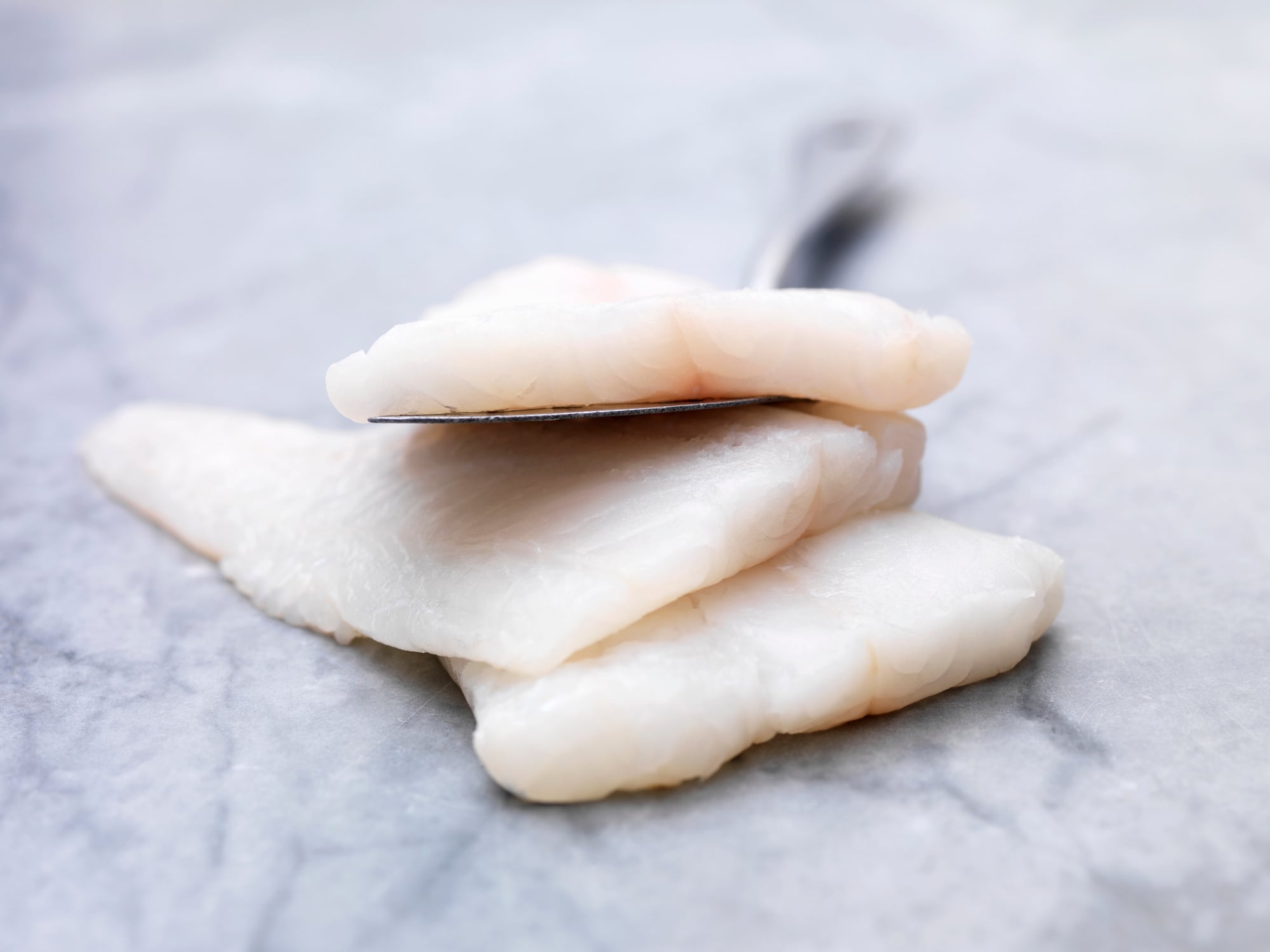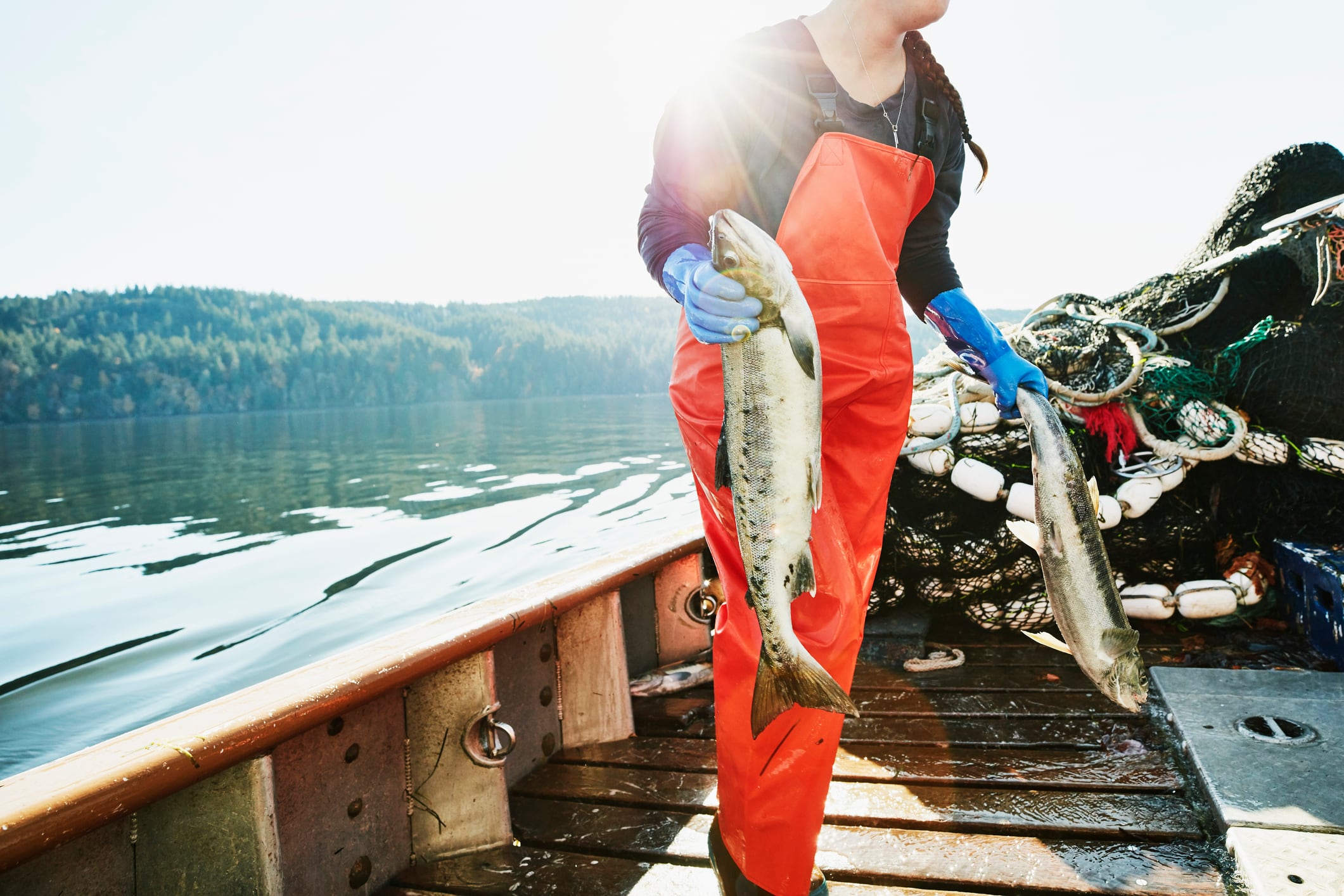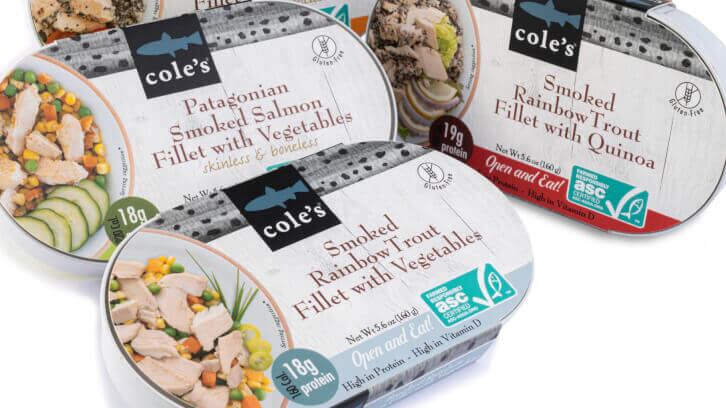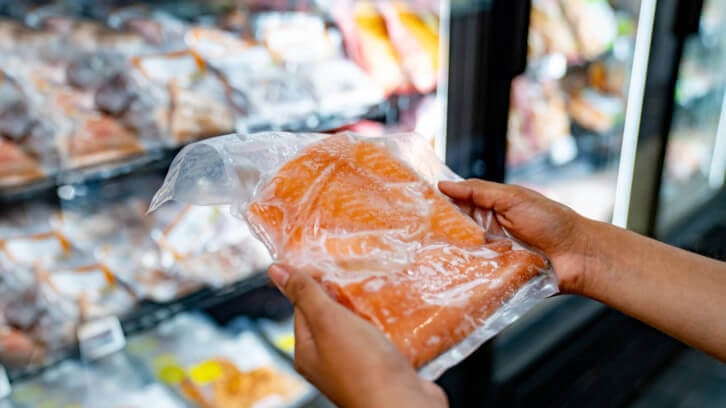As seafood buyers face growing consumer and regulatory pressure around sourcing, the Aquaculture Stewardship Council is ramping up retail and foodservice partnerships to expand access to responsibly farmed seafood, most recently cod.
The ASC officially opened its certification program to farmed cod – an expansion years in the making that leaders say will help stabilize global supply, bolster responsible aquaculture practices and create new opportunities for CPG seafood brands.
“It’s been in the works for quite some time, and we had a very long open period for stakeholder consultations as well,” said Athena Davis, who leads ASC’s communications in North America. “That allows different organizations, folks in the industry, and communities to give their feedback about cod farming, about their concerns when it comes to sustainable farming and just basically anything. We like to do that so we can get a lot of public opinion and take that all into consideration as we’re developing the standard.”
A milestone launch years in the making
The launch coincides with ASC’s broader transition to a unified Farm Standard that will align all species under a single framework by 2027.
Davis noted that ASC is undergoing a pivotal transition with the rollout of its new, unified farm standard – a two-year implementation designed to bring consistency across all certified species. The framework consolidates what were previously 12 individual species standards (now 13 with the addition of cod) into one comprehensive system.
ASC officially opened certification for cod farms following extensive stakeholder consultation Oct. 13.
Cod’s role in the US and global marketplace
Meghan Russell, ASC’s market development manager, said the timing couldn’t be better for US and European markets that depend heavily on cod during key consumption periods.
“Cod’s a fantastic fish, because in the United States, it ranks within the top 10. So, it usually falls in about seven, and it’s very popular in both food service and retail,” she said. “The export of cod has grown tremendously. In 2025, around 57% increase in volume of cod was exported … but as far as cod is concerned, for the market, with spawning and decrease in quota, it can make it quite difficult for retail year-round. So, with farmed cod, you have the ability to assure that you have those volumes on shelves."
For retailers and CPG seafood brands, this consistency could be a game-changer.
“Retailers are looking to have stable pricing, stable availability and also stable specs,” Russell said.
Historically, cod has been sold as a wild-caught product, which presents challenges due to the natural variability of wild fisheries, Russell explained. Introducing farmed cad represents a significant opportunity, allowing producers and brands to maintain consistent product quality and supply, and to offer reliable SKUs on shelves year-round, she added.
Davis noted that “the consistency at the retail level” is critical, adding that farmed cod could “create some healthy competition when it comes to pricing.”
Balancing farmed and wild for long-term sustainability
Both Davis and Russell emphasized that the new certification is not meant to replace wild-caught cod, but to complement it.
“We work closely with our sister organization, the Marine Stewardship Council,” Davis said. “Once again, it’s really not about farm versus wild, but it’s how can they complement each other. This opens up a huge space in the marketplace for us to really help educate people about farmed cod, whether it be on the business side or the shopper side. … There are a lot of great benefits, especially if you love wild fish and you love our oceans.”
High Liner Foods among early adopters
High Liner Foods, a major North American seafood producer with a stake in Norwegian aquaculture firm Norcod, is preparing to integrate ASC-certified cod into its portfolio.
The company is “looking to build out their cod brand in retail,” which is a “big priority for them in the North American market, and they’re eager to get those products on shelves,” Russell said.
Norcod, based in Norway, is among the farms now eligible to apply for certification.
“Norway is definitely the largest exporter, then Iceland, then North America,” Russell said. “Our Atlantic cod is in line with what is harvested in Iceland and Norway, but we don’t have the volume of stocks and or quota in North America that Norway and Iceland have.”
Evolving standards and animal welfare
Russell noted that as cod farming grows, the ASC will pay close attention to fish welfare and environmental impacts.
“Cod is more sensitive to temperature, and it also is more sensitive when it comes to handling. So, we’re going to be looking a lot at animal welfare there,” she said. “ASC is really conscientious in our standards of making sure that farms are in safe distance from one another and safe distance from the shore, and that the water quality is top notch.”
Looking ahead, Davis said the expansion marks a turning point for ASC’s growth in the North American market.
“We are crazily already going into year five of our marketing campaign in North America in 2026,” she said. “We’ve touched down in almost 20 major cities in the US and Canada in the last four years with our local campaigns … and we’ve seen such amazing progress.”
With US aquaculture gaining traction and consumer awareness rising, Davis said this milestone sets the stage for a new chapter of responsibly farmed seafood.
“We’ve done our job, because that’s the point, right? We all have the right to know where food comes from,” she said.




